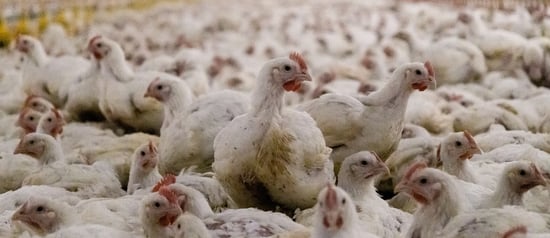
Surprising facts about pigs and why they deserve better lives
Blog
Every year, billions of pigs around the world are raised in conditions that deny them the simple comforts of sunlight, space, and natural behaviours.
Here in the UK, most pigs are still kept on factory farms often bare concrete or slatted floors, with little to do but eat, sleep and suffer in silence. These are sentient animals capable of joy, curiosity and pain, and they deserve far better.
That’s why a Just Transition for UK farming is so important. We need to move away from cruel, factory farming towards higher-welfare, nature-friendly systems that are better for animals, people, and the planet. Because when animals live better lives, we all benefit.

Here are some fascinating truths about pigs - how they think, feel, sleep and communicate. These facts show just how remarkable pigs really are.
🐷Pigs are incredibly intelligent
Scientific studies show pigs are highly intelligent and emotionally complex, capable of problem-solving, learning symbols, and even playing video games designed for primates. They recognise individuals, remember past experiences, and adapt their behaviour — much like dogs or young children.
But inside factory farms, pigs are denied any chance to use their intelligence. They can’t explore, play, or interact freely - leaving many bored, stressed, and frustrated.

🐷Pigs communicate with emotion
Researchers have identified more than 20 distinct vocalisations used by pigs to communicate, from soft grunts of contentment to high-pitched squeals of fear or pain. Each sound reflects a different emotional state.

🐷Pigs love to explore
Pigs have an extraordinary sense of smell, which is among the most powerful in the animal kingdom and they naturally spend hours rooting and foraging. On higher-welfare farms, pigs are free to roam through woodlands or pastures, digging for roots and insects and turning the soil as they go.
In factory farms, however, there’s nothing to explore. With no bedding or soil, pigs can’t root, so many resort to tail biting or chewing metal bars, which are clear signs of distress and poor welfare.
🐷Pigs dream, play, and form friendships
Like humans, pigs experience REM sleep, the stage linked with dreaming. They also enjoy games, such as chasing, play-fighting and carrying objects, and they build strong social bonds within their group.
But on factory farms, these natural behaviours are impossible. Confined to barren pens and often separated from their mothers or siblings, pigs are treated as production units instead of living beings.

Why millions of pigs suffer under factory farming
-
High stocking densities, stress, and lack of stimulation lead to harmful behaviours like tail biting, aggression, and chronic stress.
-
The systems typically treat pigs as production units rather than individuals with minds and emotions, ignoring well-documented science about their capabilities.
When intelligent, feeling animals are denied their nature, suffering is the inevitable result.
Why a Just Transition is essential
A Just Transition means moving away from intensive, high-pressure farming towards kinder, more sustainable systems where pigs can enjoy natural conditions, like access to soil, space to roam, shade, opportunities to root, and the chance to form social bonds..
By combining animal welfare, climate resilience, and economic fairness, this approach can reduce harm, support farmers, and help build food systems rooted in compassion. The facts about pigs make it clear. They deserve better than what factory farming offers.
Call for an end to cruel factory farming
Sign our petition to the UK government and let them know that there is no future for factory farming.
References
- Polygraphic analysis of sleep-wake states in juvenile pigs, showing REM proportion (10.9%) PubMed
- Review of mammals’ dreaming potential and REM sleep across species PMC+1
- Classification of pig calls across contexts reflecting emotional states Nature
- Study on pig vocal structure in relation to human–pig relationship peercommunityjournal.org+1
- Cognitive performance predicting social outcomes in pigs Nature
- Use of pigs as translational models in cognition and physiology research
Image credits: Samira via Pexels | Leah Newhouse via Pexels
